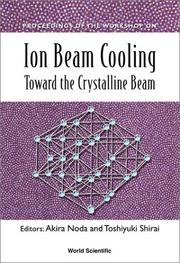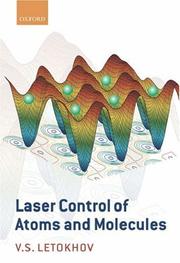| Listing 1 - 10 of 218 | << page >> |
Sort by
|
Periodical
Abstract | Keywords | Export | Availability | Bookmark
Book
ISBN: 9781606504741 Year: 2016 Publisher: New York Momentum Press
Abstract | Keywords | Export | Availability | Bookmark
 Loading...
Loading...Choose an application
- Reference Manager
- EndNote
- RefWorks (Direct export to RefWorks)
Most energy systems are suboptimized. Businesses and consumers are so focused on initial costs that they underestimate the effect of operating the energy system over its life. This suboptimization creates a fantastic opportunity to not only make a wise decision financially but also reduces the environmental impact of energy systems. There are three simple tools, known to all mechanical engineers, that when added to traditional thermodynamics enable an engineer to find the true optimum of an energy system. In this concise textbook, you will be equipped with these tools and will understand how they are applied to cooling systems. The target audiences for this textbook are mechanical engineering students in their first semester of thermodynamics all the way to engineers with up to 20 years of experience. First semester thermodynamic students will benefit the most from Appendices A and C in Chapter 1. The rest of Chapter 1 is written at a level where any undergraduate mechanical engineering student who is taking heat transfer will be able to quickly assimilate the knowledge. The textbook also has the depth to handle the latent load, which will provide the practicing engineer with the tools necessary to handle the complexity of real cooling systems.
Book
ISBN: 0443190267 Year: 2024 Publisher: San Diego : Elsevier Science & Technology,
Abstract | Keywords | Export | Availability | Bookmark
 Loading...
Loading...Choose an application
- Reference Manager
- EndNote
- RefWorks (Direct export to RefWorks)
This book provides a comprehensive exploration of thermal management systems for batteries, focusing on both basic design principles and advanced simulation and management methods. Edited by Hafiz Muhammad Ali, the work brings together contributions from experts in mechanical engineering and renewable energy, presenting a range of topics including phase-change materials, passive and active cooling techniques, and hybrid battery thermal management systems. The aim is to enhance the performance and safety of battery packs, especially for electric vehicles, by addressing thermal challenges. The book is intended for researchers, practitioners, and students in engineering disciplines, offering insights into current technologies and future trends in battery thermal management.
Book
ISBN: 9780443218941 0443218943 Year: 2025 Publisher: Cambridge, MA : Elsevier,
Abstract | Keywords | Export | Availability | Bookmark
 Loading...
Loading...Choose an application
- Reference Manager
- EndNote
- RefWorks (Direct export to RefWorks)
Cooling. --- Heat pumps. --- Heating.
Book
ISBN: 1845696832 1845696328 9781845696832 9781845696320 Year: 2009 Publisher: Cambridge, England : Cambridge International Science Publishing Limited,
Abstract | Keywords | Export | Availability | Bookmark
 Loading...
Loading...Choose an application
- Reference Manager
- EndNote
- RefWorks (Direct export to RefWorks)
Laser cooling is an important emerging technology in such areas as the cooling of semiconductors. The book examines and suggests solutions for a range of problems in the development of miniature solid-state laser refrigerators, self-cooling solid-state lasers and optical echo-processors. It begins by looking at the basic theory of laser cooling before considering such topics as self-cooling of active elements of solid-state lasers, laser cooling of solid-state information media of optical echo-processors, and problems of cooling solid-state quantum processors.Laser Cooling of Solids is
Laser manipulation (Nuclear physics) --- Solids --- Laser cooling. --- Cooling. --- Cooling --- Solid state physics --- Transparent solids --- Manipulation, Laser (Nuclear physics) --- Nuclear physics

ISBN: 1281929107 9786611929107 981277629X 9789812776297 9812382291 9789812382290 Year: 2002 Publisher: River Edge, N.J. : World Scientific,
Abstract | Keywords | Export | Availability | Bookmark
 Loading...
Loading...Choose an application
- Reference Manager
- EndNote
- RefWorks (Direct export to RefWorks)
This book deals with recent topics in the field of ion beam cooling. Indications of one-dimensional ordering observed by electron beam cooling of highly charged heavy ion beams, and crystal beams observed by laser cooling at the RFQ storage ring, are presented together with theoretical and computational investigations on these phenomena. The approach to hot ion beam cooling is also discussed, from the viewpoint of application of the beam cooling technique.
Cooling --- Ion bombardment --- Heat --- Radiation and absorption
Book
ISBN: 1000125495 3731510650 Year: 2022 Publisher: Karlsruhe KIT Scientific Publishing
Abstract | Keywords | Export | Availability | Bookmark
 Loading...
Loading...Choose an application
- Reference Manager
- EndNote
- RefWorks (Direct export to RefWorks)
Elastocaloric cooling is an emerging solid-state cooling technology with the potential to provide environmentally friendly, efficient cooling. The elastocaloric effect in superelastic shape memory alloy films is used to develop advanced cooling devices for small-scale applications. Cascaded and parallelized devices are developed to increase device temperature span and cooling capacity. The concepts are proven experimentally, a maximum temperature span of 27° C is achieved in a cascaded device.
Mechanical engineering & materials --- Elastokalorik --- Festkörperkühlung --- Kaskadierte Kühleinheit --- Superelastische Formgedächtnislegierung --- Aktive Miniatur Kühlung --- Elastocaloric Cooling --- Solid-State Cooling --- Superelastic Shape Memory Alloy --- Cascaded Cooling Device --- Small Scale Cooling
Book
ISBN: 0323886272 0323900399 9780323886277 9780323900393 Year: 2023 Publisher: Kidlington, England : Nikki P. Levy,
Abstract | Keywords | Export | Availability | Bookmark
 Loading...
Loading...Choose an application
- Reference Manager
- EndNote
- RefWorks (Direct export to RefWorks)
Evaporative cooling. --- Food crops --- Postharvest technology. --- Food --- Plants, Edible --- Field crops --- Horticultural crops --- Cooling --- Evaporation
Book
ISBN: 3038973971 3038973963 Year: 2019 Publisher: MDPI - Multidisciplinary Digital Publishing Institute
Abstract | Keywords | Export | Availability | Bookmark
 Loading...
Loading...Choose an application
- Reference Manager
- EndNote
- RefWorks (Direct export to RefWorks)
EU energy policy is more and more promoting a resilient, efficient and sustainable energy system. Several agreements have been signed in the last few months that set ambitious goals in terms of energy efficiency and emission reductions and to reduce the energy consumption in buildings. These actions are expected to fulfill the goals negotiated at the Paris Agreement in 2015. The successful development of this ambitious energy policy needs to be supported by scientific knowledge: a huge effort must be made in order to develop more efficient energy conversion technologies based both on renewables and fossil fuels. Similarly, researchers are also expected to work on the integration of conventional and novel systems, also taking into account the needs for the management of the novel energy systems in terms of energy storage and devices management. Therefore, a multi-disciplinary approach is required in order to achieve these goals. To ensure that the scientists belonging to the different disciplines are aware of the scientific progress in the other research areas, specific Conferences are periodically organized. One of the most popular conferences in this area is the Sustainable Development of Energy, Water and Environment Systems (SDEWES) Series Conference. The 12th Sustainable Development of Energy, Water and Environment Systems Conference was recently held in Dubrovnik, Croatia. The present Special Issue of Energies, specifically dedicated to the 12th SDEWES Conference, is focused on five main fields: energy policy and energy efficiency in smart energy systems, polygeneration and district heating, advanced combustion techniques and fuels, biomass and building efficiency.
district heating and cooling --- sustainable development --- renewable energy --- smart cities

ISBN: 1281160156 9786611160159 0191523712 1429488441 9780191523717 9780198528166 0198528167 9781429488440 6611160159 0198528167 1383024634 Year: 2007 Publisher: Oxford ; New York : Oxford University Press,
Abstract | Keywords | Export | Availability | Bookmark
 Loading...
Loading...Choose an application
- Reference Manager
- EndNote
- RefWorks (Direct export to RefWorks)
'Laser Control of Atoms and Molecules' treats laser light as a universal tool to control matter at the atomic and molecular level. They can heat matter, cool atoms to ultra-low temperatures, where they show quantum collective behaviour, and can act selectively on specific atoms and molecules for their detection and separation.
Quantum optics. --- Laser cooling. --- Laser beams. --- Laser spectroscopy. --- Spectrum analysis --- Beams, Laser --- Laser radiation --- Cooling --- Optics --- Photons --- Quantum theory --- Quantum optics --- Laser cooling --- Laser beams --- Laser spectroscopy --- Optique quantique --- Faisceaux laser --- Spectroscopie à laser
| Listing 1 - 10 of 218 | << page >> |
Sort by
|

 Search
Search Feedback
Feedback About UniCat
About UniCat  Help
Help News
News